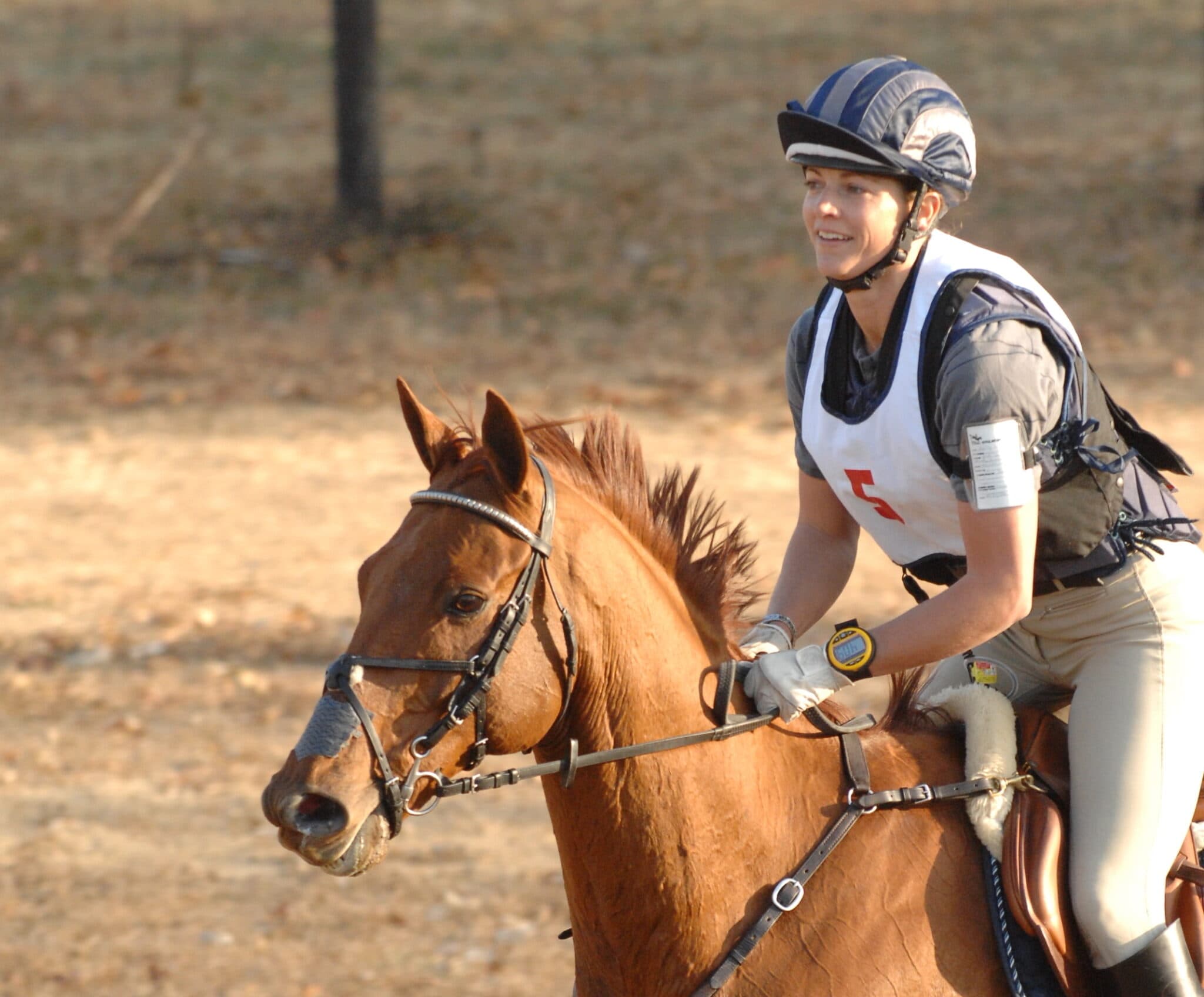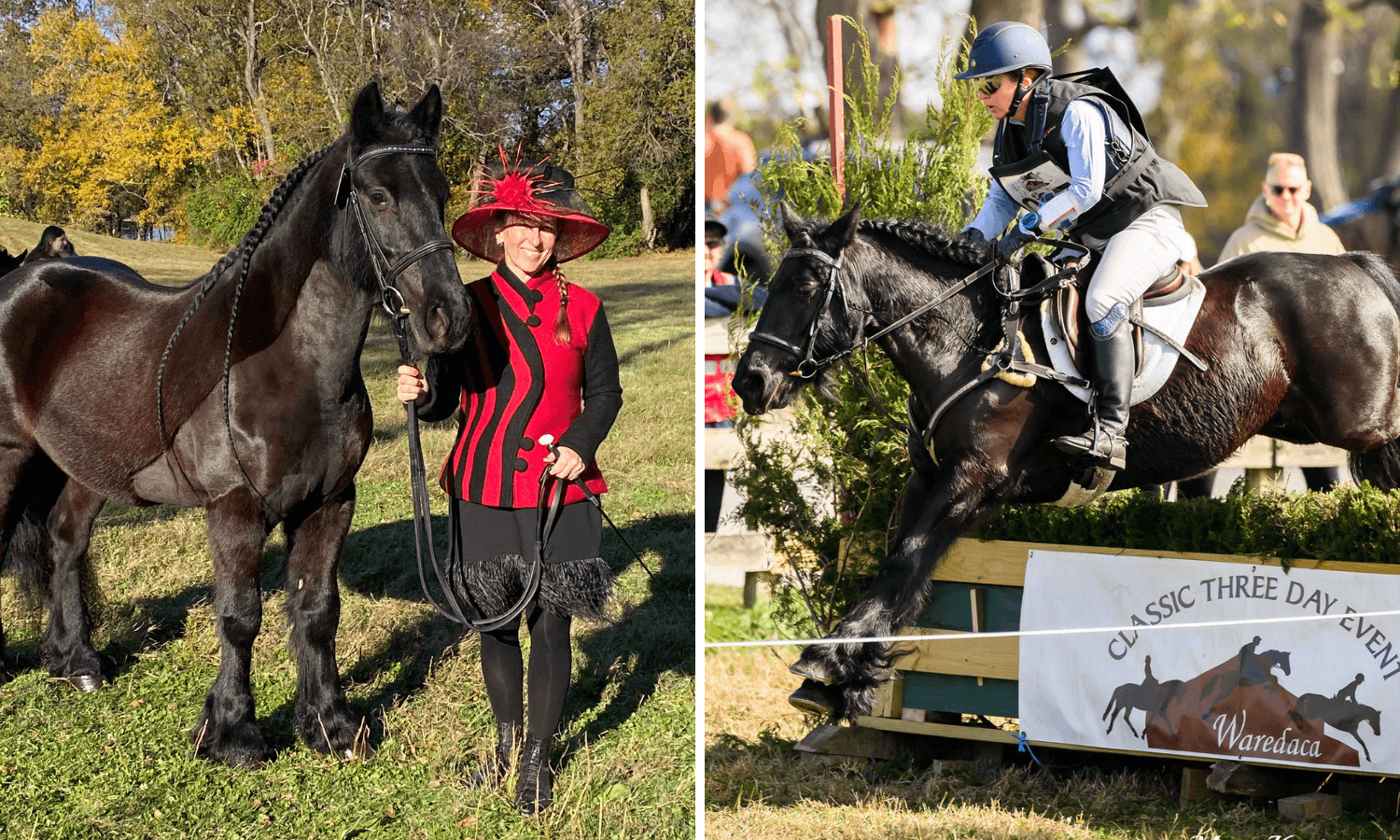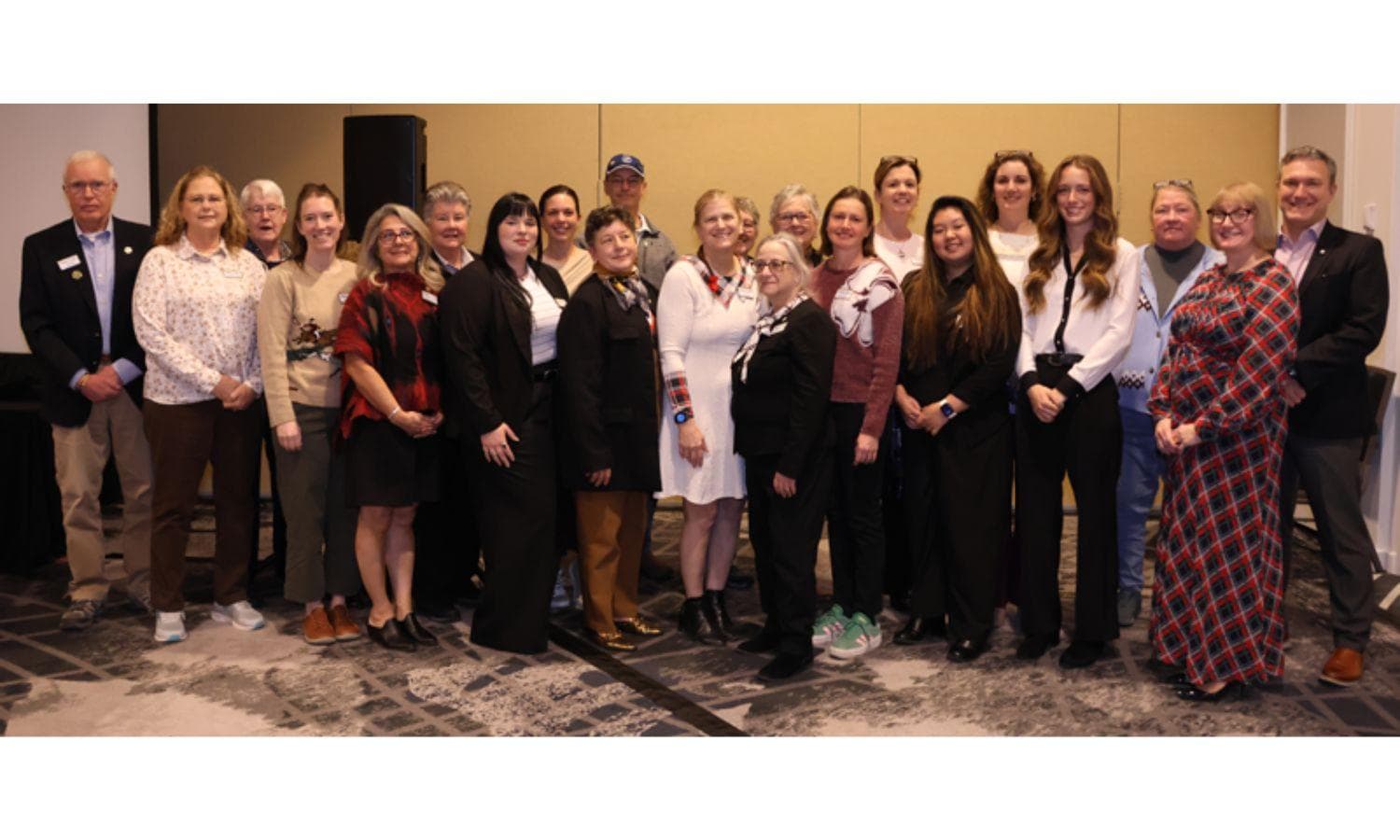Featured Clinician: Kelley Williams

The “Featured Clinician” article series is provided through a partnership between Event Clinics and the USEA.
Event Clinics recently interviewed Kelley Williams, head trainer at A Bit Better Farm (ABBF) in Brookeville, Maryland, to discuss her favorite aspects of teaching clinics and lessons. As a successful event rider and instructor, Williams has competed through the Advanced level and trained students through the CCI* level. Her winter jump clinic series is consistently popular with riders of all levels in Area II!
Williams’ love of horses began at a young age, when her mother decided mother-daughter riding lessons would be “a good idea.” After graduation from St. Mary’s College, Williams slowly built her training business out of her family’s small farm, while also working part-time at Ridgeview Veterinary Practice in Mt Airy, MD. Her work at Ridgeview deepened her horse care knowledge, which she combined with her love of retraining young horses for eventing to create A Bit Better Farm.
Throughout her career, Williams has trained with many highly qualified eventers including Jimmy Wofford, Sharon White, Stephen Bradley, Linda Zang, and Susan Graham White. She takes the knowledge gained from these lessons and applies them to her own lessons and clinics with students.
Williams noted that one of the most important lessons she’s learned over the years is the importance of the basics. Williams said if she could go back in time and talk to her younger self, she would beg herself to “take time to really focus on the basics of [her] position and balance.”
She said, “It is so easy to get caught up in going on to the bigger and more exciting parts, but the basics are the basics for a reason!” She feels that when the rider makes the basics a priority, it allows the rider to be both sympathetic to the horse and to more subtly influence with their aids. This is turn, allows a horse to perform to the best of its ability.
Williams finds that teaching clinics provides a fun way to make a difference in someone’s riding. When teaching, Williams tries to instill the importance of the basics in students. She explained that clinics are very different than teaching lessons to a student that she sees on a weekly basis.
She noted, "I only have one day to work with clinic participants. It’s a wonderful challenge, knowing that you have limited time to give them a useful takeaway that will help with their riding every day.”
Williams finds stadium jumping to be the easiest type of clinic to teach, because she likes to make her clinics fun and unique. She often puts cross-country type jumps and questions in the show jumping ring so that riders can practice techniques and skills that they can carry over to their cross-country rides later on.
Williams shared that her expectations of riders who attend her clinics are, first and foremost, that they arrive with appropriate and safe riding equipment for whatever type of riding they will be doing. Beyond that, she hopes that the riders in her clinics “come ready to absorb as much information and new ideas as they can in the short time [we] get to work together.”
Williams stated, “I love teaching any rider, regardless of level, who is engaged and ready to put forth the effort to succeed.” On the flip side, Williams finds it hardest to teach a clinic when riders sign up for a level they are not prepared for. This can be due to fitness or skill level, but it makes it difficult to ensure that everyone in the group gets what they need for instruction.
The best piece of advice that she is glad she took, and often now shares with others, is, “As a rider, you are your horse’s trainer. Every moment you spend with your horse and on your horse’s back is a moment that you have to help reach them to be the horse that you want. The key is to do is be a calm, clear and repetitive influence in their life.”
Indeed, Williams’ former horse Brazen Bomber, whom she successfully trained up through the levels through to Advanced, is now happily packing an adult amateur around Training level. On Brazen Bromber, Williams earned the Reserve Championship title at the Jersey Fresh International CCI2*.
When we asked Williams what her favorite thing to do is, outside of teaching and riding, she shared that she really enjoys yoga and practices it every chance she gets!
We are very appreciative of Williams taking the time to answer our questions and giving us a little insight into her approach as a trainer and clinician. Williams holds lesson, clinics, and training sessions throughout the year at A Bit Better Farm in Brookeville, Maryland. Perhaps we’ll be able to convince her to hold a mounted Yoga for Equestrians workshop! Keep an eye out for her spring clinic series on Event Clinics.















